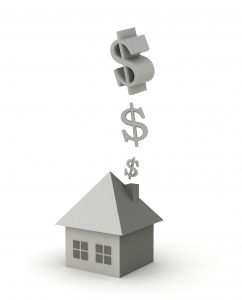 Are you looking to have a new heating system installed in your house? If you are, one of the most important bits of information you’ll want to find out about potential models is their efficiency. A high-efficiency furnace uses less energy to provide more heat, and therefore costs less to run.
Are you looking to have a new heating system installed in your house? If you are, one of the most important bits of information you’ll want to find out about potential models is their efficiency. A high-efficiency furnace uses less energy to provide more heat, and therefore costs less to run.
Or at least, that’s what it seems to mean.
The truth is a bit more complicated. Efficiency is a rating of the heating output of a furnace compared to the amount of energy it uses. This doesn’t necessarily mean that a furnace with a higher efficiency rating will automatically cost less to run. A good example of this is the difference in the efficiency ratings of gas furnaces and electric furnaces.
How Furnace Efficiency Is Rated
First, we have to explain how furnaces are rated for efficiency. When you look over a furnace’s stats, you’ll see something called AFUE. This stands for annual fuel utilization efficiency, and it’s the measurement for energy efficiency. AFUE is listed as a percentage, and this is the amount of the energy source the furnace converts directly into the heat energy it sends into the house. The remaining energy goes to waste as exhaust. For example, a mid-efficiency gas furnace with an AFUE of 80% will convert 80% of the natural gas it burns into heat and lose 20% as exhaust exits through the flue.
Standard Efficiency Ratings for Furnaces
Efficiency ratings for natural gas furnaces have increased over the past decades. For many years, the standard gas furnace had an AFUE of around 70%. If you have a furnace that’s more than 10 years old, it probably has an efficiency of around 80–85%. Modern high efficiency furnaces often score in the 90s, and there are condensing furnaces with AFUEs of 98%. (Keep in mind that the higher the efficiency, the more expensive the unit is to purchase up front.)
With electric furnaces, the efficiency range is much simpler: all electric furnaces have an AFUE of 100%.
Oh, So the Electric Furnace Is the Least Expensive to Run!
Yeah, no. This is the tricky part where AFUE can lead a customer astray. A furnace with 100% efficiency that never wastes any energy sounds like a deal that can’t be topped. But this is because an electric furnace doesn’t burn fuel and lose energy to exhaust. All the electricity the furnace uses is converted straight to heat energy as electricity runs through the heating elements. A 100% efficiency rating is just a reflection of how electric furnaces operate.
Because electricity is often more expensive a fuel source than natural gas, an electric furnace with an AFUE of 100% may be much more expensive to run than a mid-efficiency gas furnace with an AFUE of 85%.
Our general advice is that if you have a natural gas connection to your house, you should use a gas furnace rather than an electric one. It will probably cost less to run and provide better heating. We’ll help you navigate the options for furnaces in Howell, MI so you end up with the right model for your needs and budget.
First Choice Heating & Cooling is the contractor to call for HVAC service in Fenton, Linden, Holly, and the Surrounding Areas. If your home had a voice … it would call First Choice!
